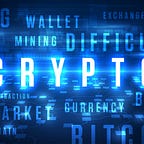Decentralized Finance (defi)
“Decentralization” refers to the lack of a central exchange. Smart contract programs for the DeFi protocols themselves are run using open source software by a community of developers and programmers. DeFi has attracted large cryptocurrency venture capitalists such as Andreessen Horowitz, Bain Capital Ventures and Michael Novogratz.
The excitement around DeFi centers on the concept of “money Legos”–the idea that anyone is able to create, modify, mix-and-match, link, or build on top of any existing DeFi product without permission. DeFi protocols are modular so they can stack on top of each other to build an increasingly denser system of interoperating parts.
Arguably the most significant benefit of DeFi applications is their accessibility. Since there is no governing entity at the helm, and there are no regulations or rules to adhere to. DeFi applications can be accessed by anyone — no matter where in the world they reside. Anybody with a cryptocurrency wallet and an internet connection can interact with the world of Decentralized Finance — with no credit checks, KYC, or other barriers to entry.
The DeFi sector functions without gatekeepers. As such, anyone can develop a DeFi application and offer it to the world. Additionally, anyone can participate in DeFi Dapps without concern for approval. This strategy is far cry from today’s financial system that requires potential users to traverse a myriad of regulatory verification systems before they can participate in the global economy.
Most applications that call themselves “DeFi” are built on top of Ethereum, the world’s second-largest cryptocurrency platform, which sets itself apart from the Bitcoin platform in that it’s easier to use to build other types of decentralized applications beyond simple transactions. These more complex financial use cases were even highlighted by Ethereum creator Vitalik Buterin back in 2013 in the original Ethereum white paper.
Members of DeFi take interoperability into account when building their projects. This helps strengthen the compounding effects of all our projects as a whole. Open sourcing helps us reach this goal by allowing us to collectively understand how all of our products can be woven together on a technical level.
One of the sectors most affected by the introduction of DeFi is the lending sector. If you have ever applied for a loan, you know the process is time-consuming. Worst of all, you are forced to work with lending companies specially designed to maximize their returns. Luckily, the DeFi community has come up with some interesting ways to improve this market.
There is no safety net in place when it comes to managing assets in a decentralized system. However, thanks to DeFi insurance platforms, the risks for the users can become significantly lower. It may be a bit too early to bet your bottom dollar on it, but we may very well be on the brink of a financial revolution eagerly spearheaded by decentralized finance. If you don’t want to miss out on it, understanding what DeFi is and how it works should be at the top of your must-know list.
